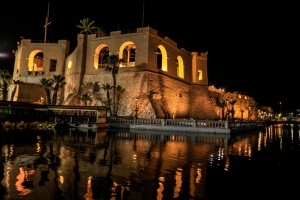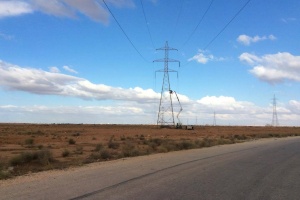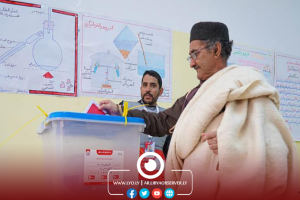By Mohamed Abaid, Independent Libyan Analyst
Harnessing the Potential of Libya's Fishing Industry: A Comprehensive Approach to Economic Prosperity

Libya, a North African nation with an extensive 1,770-kilometer coastline along the Mediterranean Sea, is a country with immense potential for a prosperous fishing industry. However, this potential remains largely untapped due to a myriad of challenges, including illegal fishing, smuggling of marine wealth, and lack of effective regulation. According to a report by the Libyan Herald, these issues result in an annual loss of approximately $5 billion for the country, primarily due to illegal tuna fishing within Libya's territorial waters. This article delves into these challenges and proposes potential solutions that could help Libya harness the full potential of its fishing industry.
The Current State of Libya's Fishing Industry: The underdevelopment of Libya's fishing industry represents a significant economic loss. With the right investment and development, the sector could become a major contributor to the country's GDP. It could also provide employment opportunities for thousands of Libyans, particularly in coastal areas, reducing unemployment rates and boosting local economies.
Moreover, a thriving fishing industry could lead to increased exports, contributing to the country's foreign exchange earnings. Currently, Libya imports a significant portion of its seafood, a situation that could be reversed with a robust fishing industry.
The Challenges: Illegal Fishing and Smuggling
Illegal fishing and smuggling of marine wealth are significant problems facing Libya's fishing industry. The lack of effective coastal surveillance and control has made the country's waters a hotspot for illegal fishing activities. These activities not only deplete the marine resources but also rob the country of valuable revenue.
Furthermore, the use of Libyan fishing licenses by foreign entities exacerbates the problem. These entities exploit the country's marine resources without contributing significantly to its economy.
The Solutions
Strengthening Coastal Surveillance: Investment in advanced surveillance technologies, such as satellite imaging and drones, could enhance the monitoring of Libya's coasts. Effective surveillance would deter illegal fishing activities and ensure the protection of marine resources.
International Cooperation: Libya could benefit from cooperation with international organizations and neighboring countries in combating illegal fishing. Sharing information and resources, conducting joint operations, and implementing regional agreements could significantly reduce illegal fishing activities.
Legislation and Enforcement: Strengthening laws against illegal fishing and ensuring their effective enforcement is crucial. Stricter penalties for violations and adequate resources for law enforcement agencies could deter illegal activities and protect marine resources.
Community Engagement: Local communities could play a significant role in managing marine resources. Providing training and resources to local fishermen, promoting sustainable fishing practices, and involving communities in surveillance and enforcement efforts could foster a sense of ownership and responsibility, leading to better management of marine resources.
Innovative Approaches: On-Board Tuna Factories
One innovative approach to increasing the efficiency and profitability of Libya's fishing industry could be the implementation of on-board tuna factories. These factories, located directly on the fishing vessels, would allow for the immediate processing of tuna as soon as they are caught. This could significantly reduce the time between catching the fish and getting it to market, thereby preserving its freshness and increasing its value.
Conclusion: In conclusion, the revitalization of Libya's fishing industry is a task of significant economic and social importance. The potential benefits are enormous, from job creation to food security and economic growth. By addressing the challenges head-on and investing in sustainable practices, Libya can transform its fishing industry into a pillar of economic prosperity. The journey may be long and fraught with challenges, but the rewards make it a worthwhile endeavor. The time to act is now. By harnessing the potential of its fishing industry, Libya can set a course towards a future of economic prosperity and sustainability.
Disclaimer: The views and opinions expressed in this article are those of the writer, and do not necessarily reflect those of the Libya Observer






